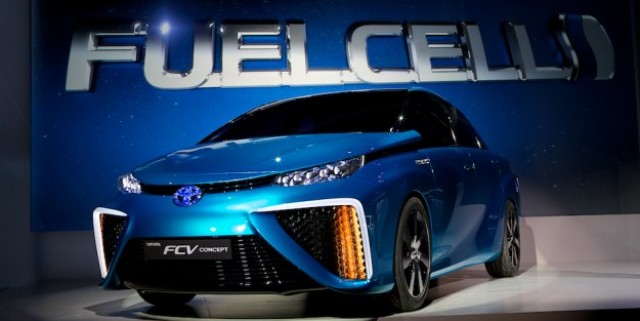
The Toyota FCV hydrogen-powered car has successfully been used as an alternative power source in a demonstration at the Consumer Electronics Show in Las Vegas.
The Toyota FCV, a forerunner to the car maker’s first production hydrogen fuel cell vehicle, was shown to be a legitimate back-up domestic energy supplier at the CES, with Toyota claiming the car’s 100kW-plus electric motor is capable of producing enough energy to power a regular home for a week.
Due to the success of the FCV’s fuel cells as a secondary power source, Toyota engineers have now begun researching the viability of a hydrogen-powered external power-supply device that could hypothetically be used to provide a safe, simple domestic power source.
This is not the first time Toyota has demonstrated the non-automotive capabilities of its alternative-powered cars; in the aftermath of the Japan earthquake and tsunami in 2011, Toyota Prius cars were drafted in as emergency energy sources for affected regions.
The Toyota FCV, a zero-emission vehicle with a claimed range of more than 480km on a full tank of hydrogen, was developed as an environmentally friendly alternative to conventionally powered cars. A key benefit of hydrogen-powered vehicle, apart from only emitting water, is their ability to be refilled just as quickly as petrol or diesel cars.
Sales of the production version of the Toyota FCV will begin overseas next year.